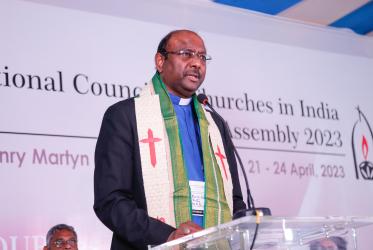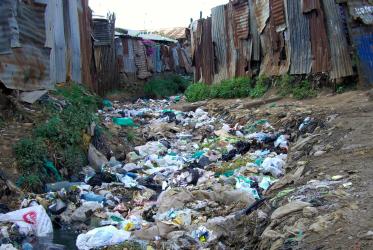Displaying 1 - 16 of 16
On World Toilet Day, sanitation is “an issue of justice”
16 November 2020
Church of South India eco-ministry featured on UNESCO website
17 February 2020
During Lent, a “carbon fast” can honour God’s creation
09 February 2017
GEM school ends with hope for a better tomorrow
08 September 2016
A just financial and economic architecture is possible, students find
08 September 2016
Momentum builds for ban on nuclear weapons
16 December 2014







